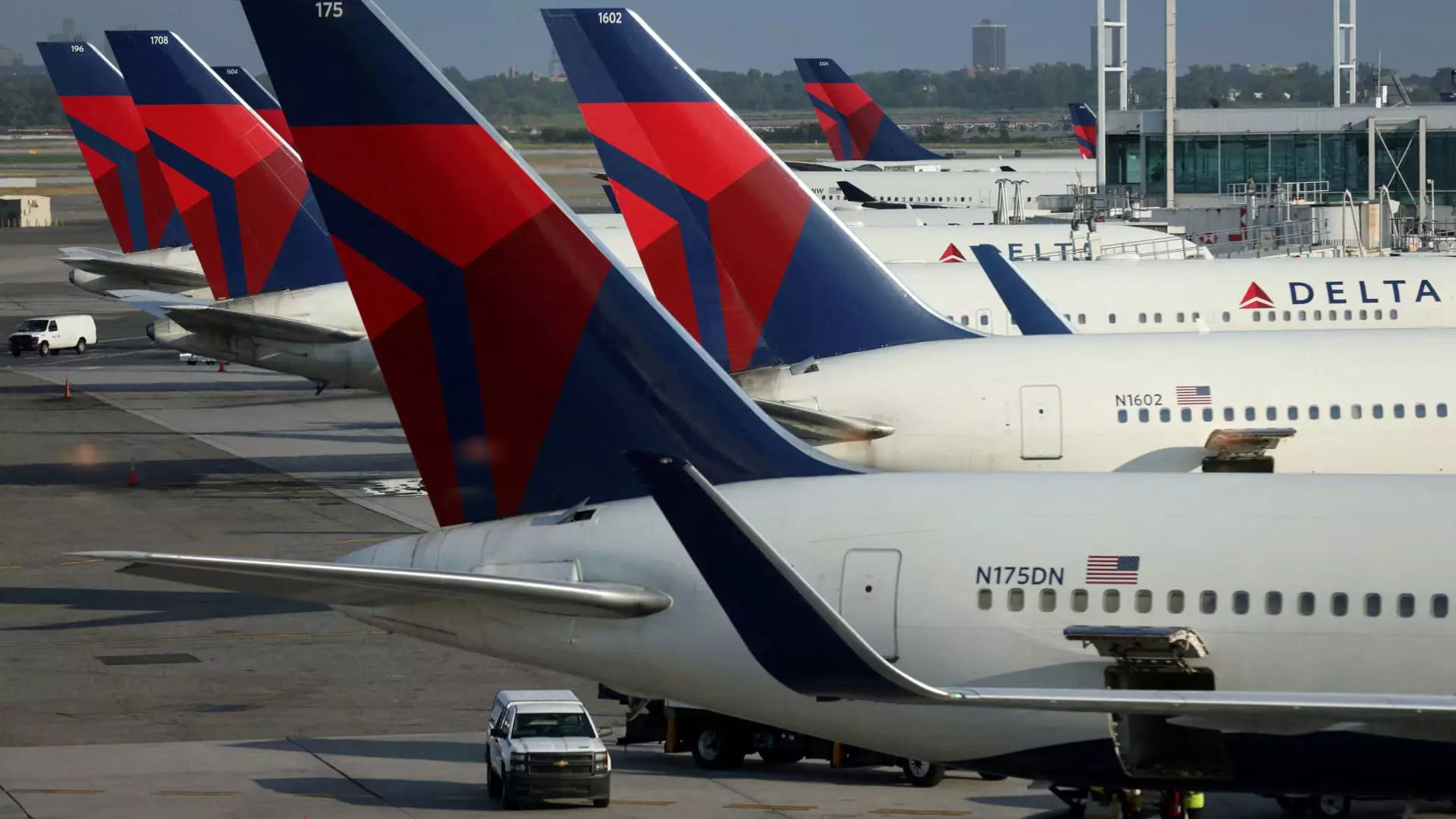In a high-stakes legal showdown, Delta Air Lines has initiated a lawsuit against CrowdStrike, a prominent security software provider, in a Georgia court. This lawsuit stems from a catastrophic outage that occurred in July, a disruption that not only resulted in the cancellation of approximately 7,000 flights but also had severe financial implications for the airline. According to Delta, the incident led to a staggering loss of $380 million and an additional $170 million in associated costs. Such significant repercussions raise serious questions about the responsibilities borne by software vendors in ensuring the reliability of their products.
The crux of Delta’s allegations against CrowdStrike lies in claims of breach of contract and negligence. The airline contends that a flawed software update, which unexpectedly impacted computers utilizing Microsoft’s Windows operating system, was deployed without sufficient testing. Delta’s legal complaint underscores that CrowdStrike, in its rush for profit, neglected essential testing and certification procedures that are crucial in preventing such mishaps. The airline posits that had the update undergone even minimal testing, the resultant chaos could have been averted.
Interestingly, Delta had already taken proactive measures by disabling automatic updates from CrowdStrike, yet this particular software reached their systems regardless. Delta’s assertion that CrowdStrike’s Falcon software inadvertently created an unauthorized access point in Windows runs deep in implications about software governance and accountability within the tech industry.
Delta’s CEO, Ed Bastian, has been vocally critical of the situation and has noted the substantial fallout from the incident, describing it as a global catastrophe. In a recent interview, Bastian articulated a need for full compensation, emphasizing the business’s wrongful suffering due to the flawed update. His poignant reflections highlight a growing concern among businesses regarding the reliability of third-party software and the broader implications of such dependencies.
Meanwhile, CrowdStrike’s response has been one of regret; CEO George Kurtz has publicly apologized for the incident, a move often seen as a necessary step in public relations during a crisis. Additionally, the company has signaled a commitment to reform its practices to mitigate future risks. However, regret and promises of change may not be enough to appease corporate customers who suffer significant losses from operational failures.
The aftermath of this legal confrontation could have far-reaching implications for the technology and aviation sectors. Not only does it shine a spotlight on the potential shortcomings of software providers, but it also raises critical questions about liability and due diligence in software deployment. As the landscape of corporate software solutions continues to evolve, the repercussions of this legal battle may compel other organizations to reassess their vendor relationships and risk management strategies.
Furthermore, as industry conversations around improving security software intensify—including discussions among key players like Microsoft and various endpoint security vendors—the echoes of Delta’s experience will likely resonate. The goal will be to establish more robust protocols that prioritize thorough testing and reliable contingencies, ultimately ensuring that such disruptions are less likely to become a norm rather than an exception.

